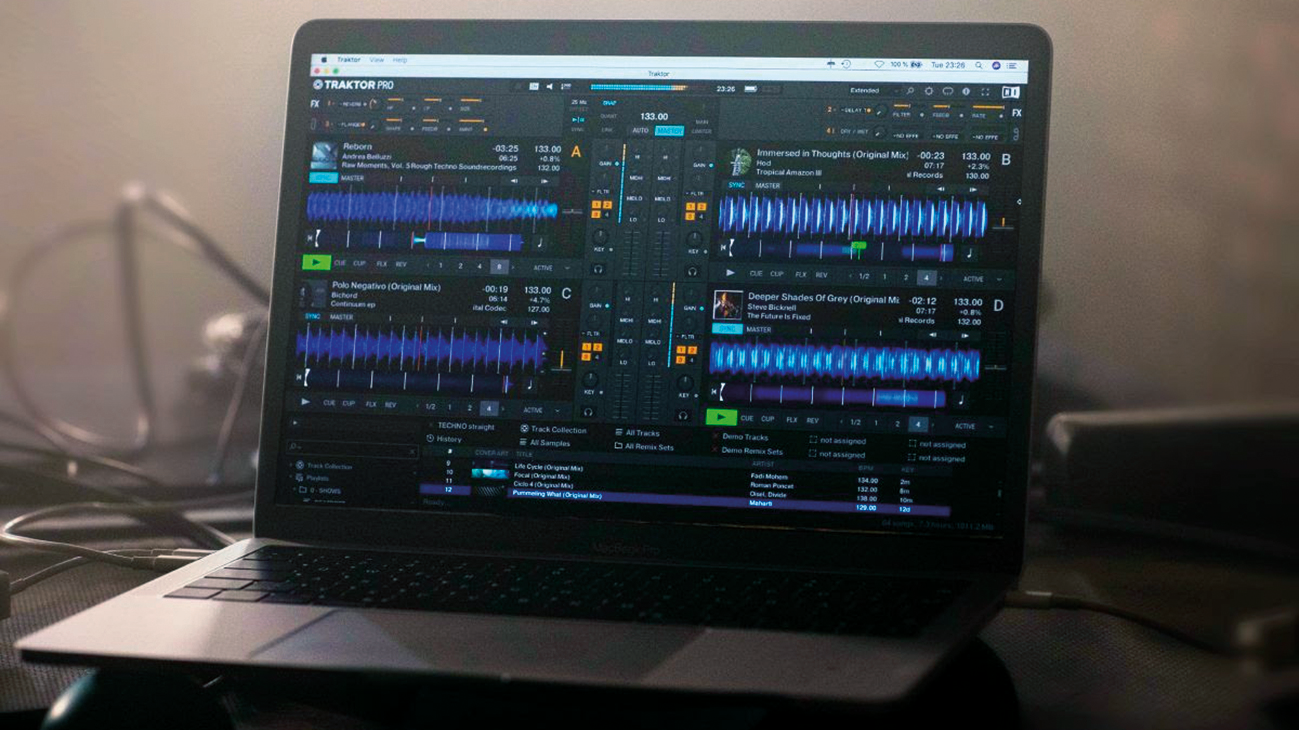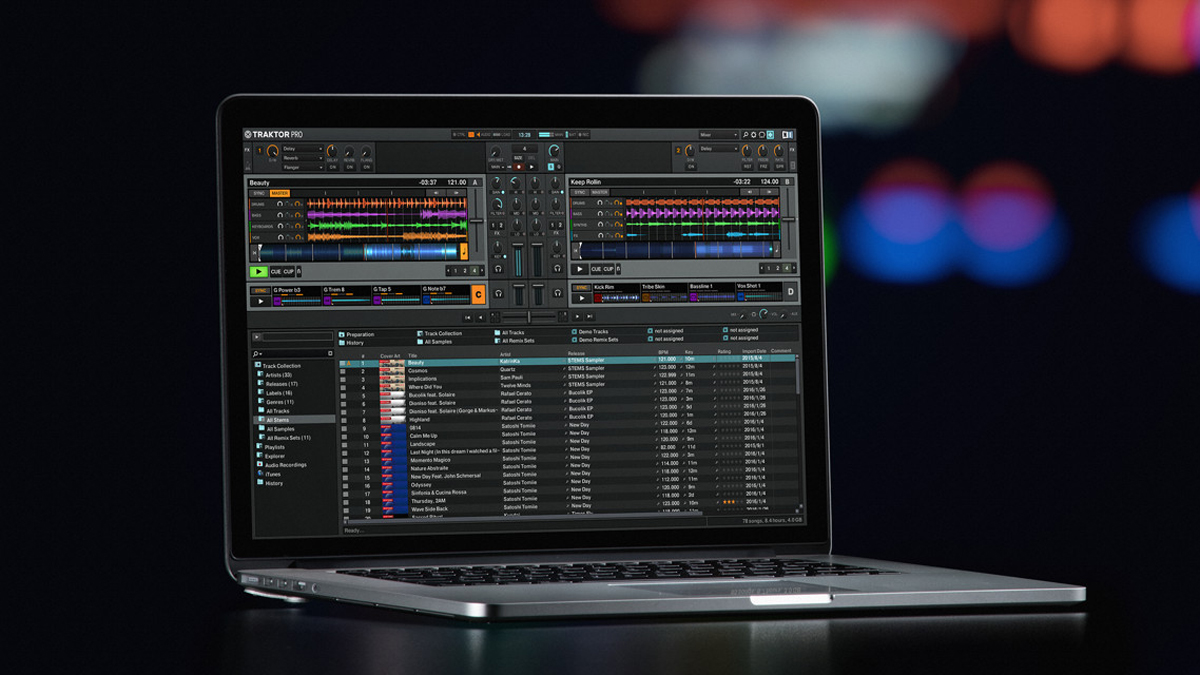Is cloud streaming a viable option for DJs?
Most DJ software apps are now compatible with at least a few streaming libraries, but are these going to replace your (virtual) record crate any time soon?

Want all the hottest music and gear news, reviews, deals, features and more, direct to your inbox? Sign up here.
You are now subscribed
Your newsletter sign-up was successful
The general principle behind streaming from a cloud music library for DJing is the same as using any streaming service such as Spotify or Apple Music. Instead of playing music from physical media or pre-loaded onto a drive, you can access a library of tracks stored remotely.
There are some key differences for DJ-specific streaming tools though, primarily that they allow tracks to be loaded into a mixing app. This allows users to adjust the playback BPM, save metadata and potentially do things like apply cue points, and slice or sample the track.
Which mixing software is best for streaming?
In the past few years most major DJing applications have added some form, but some are better served than others. Rekordbox – which has its own cloud-based library – plus Serato and VirtualDJ are arguably top. The first two have compatibility with Beatport LINK, Beatsource LINK, SoundCloud GO+ and Tidal, while VirtualDJ offers these plus Deezer too.
Denon’s Engine DJ – designed to work with the company’s own gear – is handy too, with integration for Beatport, Beatsource, Tidal and Soundcloud. It also allows users to connect a Dropbox account for cloud storage of their own music files. Traktor, meanwhile, is slightly less flexible than the others, and works with just Beatport and Beatsource. For iOS, Algoriddim Djay offers compatibility with Tidal, Soundcloud, Beatport and Beatsource.
Which is the best streaming service for DJs?
Not all streaming services are equal. Beatport LINK and Beatsource LINK are services specifically aimed at DJ use. Both are based around the same fundamental technology.
This allows tight integration with host DJ software and – crucially – lets users store a generous library of tracks in a ‘locker’ for offline use. Both offer subscription tiers, which primarily affect how many tracks a user can store offline as well as the streaming quality.
Being DJ-focused, both offer extra conveniences such as having tracks pre-tagged with BPM and key info, plus access to genre-themed or DJ-created charts and playlists. Both have their own web-based mixing apps too, so you can mix directly from the streaming services.
Want all the hottest music and gear news, reviews, deals, features and more, direct to your inbox? Sign up here.

Given that they use similar technology, what’s the difference? Essentially that comes down to the libraries themselves. Beatport LINK gives access to tracks from the Beatport store, while Beatsource has its own library sourced from a variety of major and indie labels. Broadly speaking, Beatport is probably better for purely electronic music DJs working in genres like house, techno or DnB.
Beatsource is a bit broader, with more cross-genre flexibility and handy playlists aimed at event DJs, specific genres and decades. Beatsource also stocks an array of DJ edits and acapellas. This is a pretty broad summary of each service though – both offer free trials, so it’s worth digging into the libraries of both before deciding which to pay for.
Other streamers
Other compatible streaming services have their own pros and cons. Soundcloud’s DJ-specific Soundcloud GO+ lets users stream tracks at 320kbps – higher than Beatport or Beatsource – and download an unlimited number of tracks to store offline.
However, it’s worth remembering that Soundcloud is largely stocked by its user base. While a lot of tracks on Soundcloud will likely be pro-quality, there’s no guarantee that uploads themselves will match your streaming quality.
As for Tidal or Deezer, both are primarily music listening services, with some significant drawbacks for pro DJs. Firstly, the ability to download tracks for offline use is very limited, so these aren’t great solutions unless you have a reliable internet connection.
More significantly, both have legal restrictions on using their libraries for commercial use, meaning limitations on where you can play and whether you can record or broadcast your mixes. Explore the T&Cs of each.
Is cloud streaming service a good option for DJing?
Ultimately the answer comes down to what you want to do and where. For event or bar DJs who require flexibility and a broad, regularly changing catalogue of tracks to play, Beatport LINK and Beatsource LINK are both appealing and, since you can pre-download a decent crop of songs, fairly useful even if without wi-fi. Both services are fairly expensive though, and genre-specific club DJs who work from more tightly curated playlists may find that simply buying music outright is still cheaper longer term.
Soundcloud has a very electronic music-friendly catalogue. It’s worth doing plenty of prep if you do plan to use it though, to be sure of both the quality and rights status of anything you plan to play. As for the likes of Tidal or Deezer, it’s hard to recommend either for pro use, although they could be good options for playing around at home.


Future Music is the number one magazine for today's producers. Packed with technique and technology we'll help you make great new music. All-access artist interviews, in-depth gear reviews, essential production tutorials and much more. Every marvellous monthly edition features reliable reviews of the latest and greatest hardware and software technology and techniques, unparalleled advice, in-depth interviews, sensational free samples and so much more to improve the experience and outcome of your music-making.
